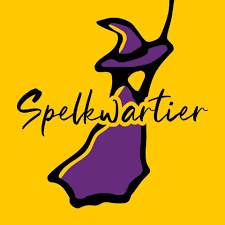The wealthy Mr Walton is murdered in the study of his huge mansion. One of his guests, all strange characters with alliterative names, is the murderer. Possibly there is also an accomplice. It is up to you to prove yourself as a detective. Try to selectively share the scarce information with other players (as well as extract it) and be the first to find out WHO committed the murder, HOW this murderer abruptly ended Mr Walton’s life and WHY this villain committed this act.
Goal
A while back, I played Cluedo with a group of friends: a classic game that, unlike other classic games such as Don’t Worry and Monopoly, actually still manages to offer an entertaining gaming experience. Although Cluedo has stood the test of time better than other classics, this tried-and-tested game concept is still a tad outdated. The amount of information is not very varied and experienced detectives can come to a conclusion quickly. In addition, the dice to walk from room to room is almost agonising. One player therefore rightly wondered aloud if there isn’t a Cluedo for modern times: enter Awkward Guests – The Walton Case by Megacorpin Games.
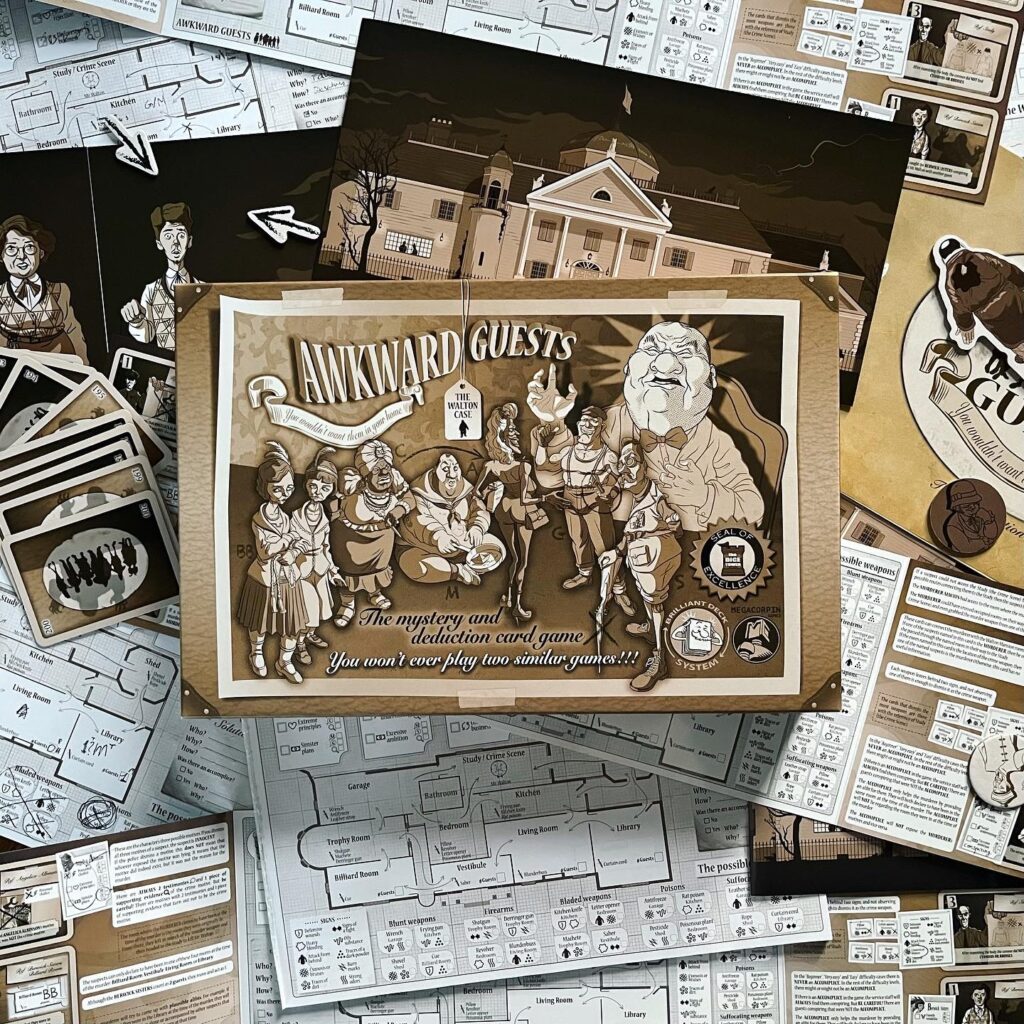
In the deduction game Awkward Guests, players try to guess who committed Mr Walton’s murder. As in Cluedo, players are given a hand of cards with information and, based on that information, players have to make connections and deduce the correct solution. As in Cluedo, players start exchanging the information on the cards with each other to gather more information, but that is where the comparisons end. The amount and variety of information available, exchange of this information, the different ways to link information and make connections, differs from Cluedo and these elements make for a very entertaining and unique game.
To win the game, a player must be the first to give the right answer during a round. What aspects should the answer contain?
- WHO killed Mr Walton?
- HOW did the murderer end Mr Walton’s life (in other words, with what weapon)?
- WHY did the killer kill him (in other words, what motive)?
- Was there an accomplice? If so, who was the accomplice?
Set-up
Each player is given a screen and a sheet of paper. The sheet of paper contains all relevant information such as the perpetrators and their possible motives, the map showing the different rooms of the mansion and the different routes between them, the different weapons and the locations of these weapons and the characteristics relevant to these weapons or their use. Players are given a pen (or even more conveniently, a pencil) to make notes on their sheet of paper and players are also given a disc with a white and a brown side. In the centre of the table is a map and the portraits of the possible culprits and a quantity of cardboard arrows to request information with.
An innovative aspect of Awkward Guests (and what makes the game considerably more replayable than many other dedudtion games) are the many playing cards. All cards are numbered and a selection of different cards is used to compile a draw pile of information. Through the app or the rulebook, it is indicated which cards players will play this game with, and because of the many different cards, different combinations are possible. So the selection of cards actually forms a unique murder scenario. Players receive a number of cards in hand and are ready to play
Gameplay
The gameplay of Awkward Guests is reasonably simple. Each round, players get (new cards), players process the (new information) and take turns asking other players for information about culprits or locations.
At the start of the game, players are given a hand of six cards. Each card has a value (1, 2 or 3 points). The higher the value the more valuable the information on this card. On the top right corner is a reference to a culprit and/or a location. There is also information described on the card. Some suspects make claims about themselves or other suspects. For example, suspects may say they were at a particular location or with another suspect. They may also make an allegation about another possible culprit. These are only assertions and do need to be supported by facts. Other cards provide these facts. For example, witnesses indicate where they saw suspects, the police make adamant statements about possible motives, the coroner gives information about weapons and so on.
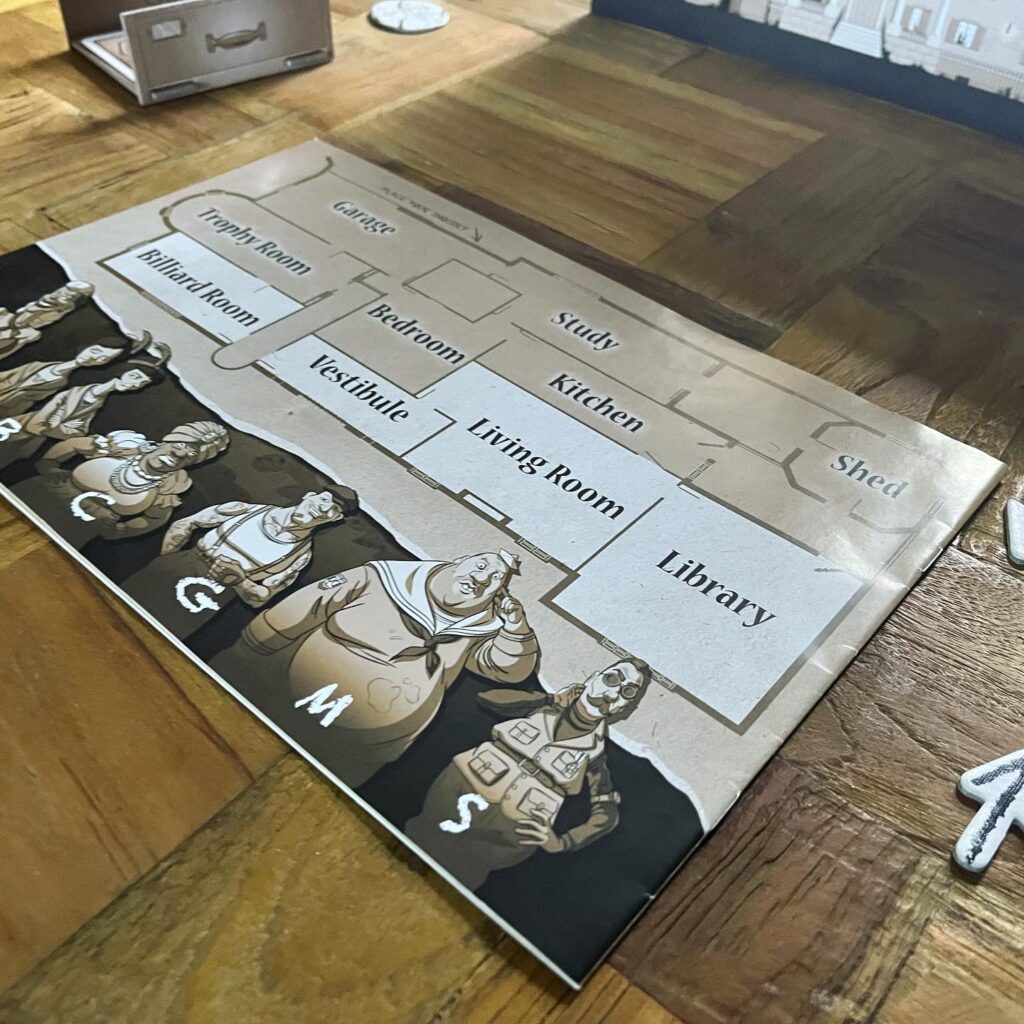
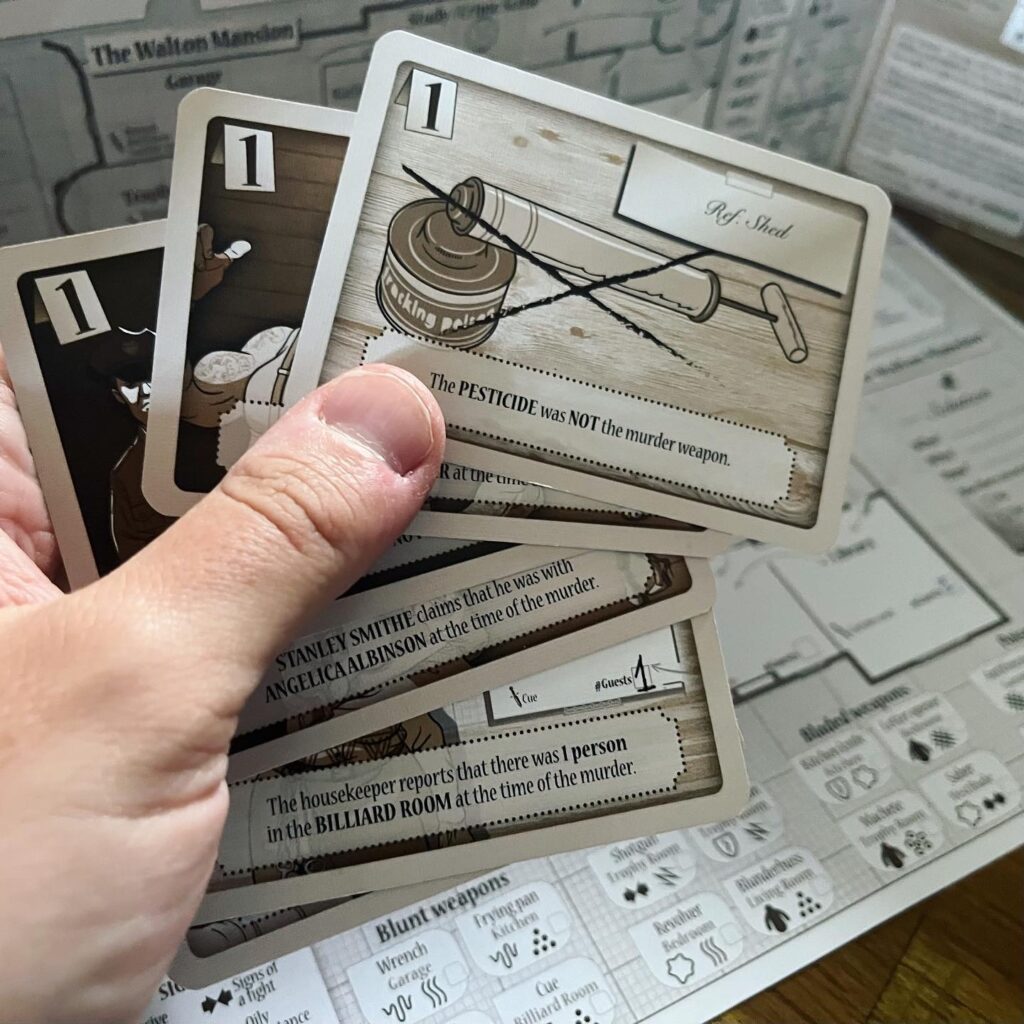
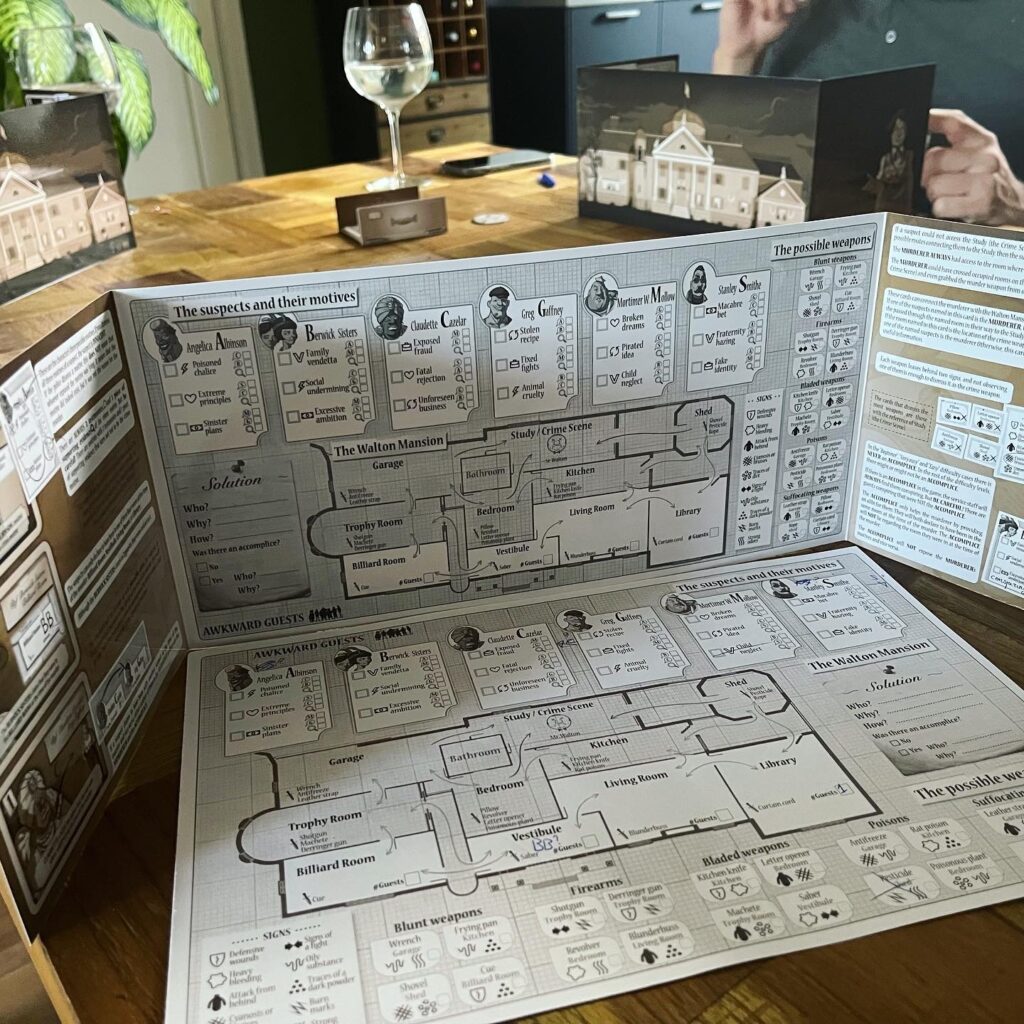
A lot of information can be linked together. For instance, there are different walking routes between rooms in the mansion and weapons are in certain locations. If a particular location was inaccessible to a suspect, you can rule out the use of a specific weapon, for example. Try to cross-reference this information and you will slowly be able to reasonably draw a conclusion.
During a turn, you also request information about two different references (locations or potential offenders) that you are interested in. The rest of the players can offer you cards from their hand based on the requested references. However, these cards must contain the requested references. The player indicates the total value for which this player offers cards, and if you want to accept their offer, you must offer a quantity of cards equal to the offered value. Does nobody make an offer? Then this player may draw cards from the pile.
Once each player has requested information, the round is completed. At the end of each round, players can try to solve the mystery. If they want to guess the indicate this via their double-sided tile. If you play via the app then you have multiple attempts to solve the mystery, only you may not attempt to guess the mystery the next round. Playing with the app is therefore something I can recommend. If the mystery is not solved, players discard part of their hand cards and get three new cards. The player or players who solve the mystery first win!
Verdict
Awkward Guests is a delightful game full of deduction and bluffing. Exchanging cards is a highlight of this game. Players can selectively offer and withhold information in this way to turn other players heel and also lead them astray. The large quantities of cards make for interesting information asymmetry and an interactive dynamic between players. Sometimes it is interesting to offer high-value cards in order to possibly receive a lot of cards (and information), but these high-value cards offer valuable information. Racing against other players means you have to be the first to guess the right answer. This makes you take a risk by drawing conclusions based on incomplete information, but sometimes it pays to rely on your gut feeling. This is a delightful game for sleuths.



